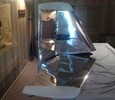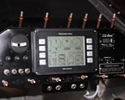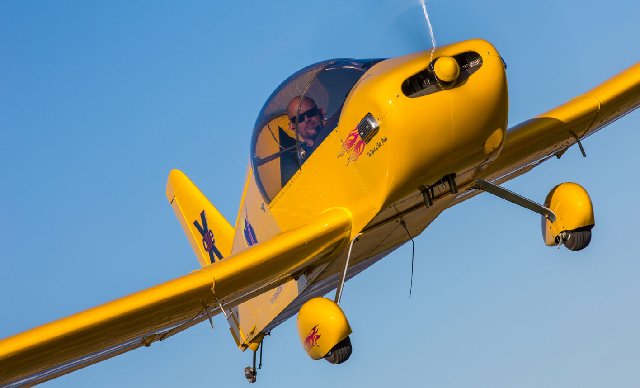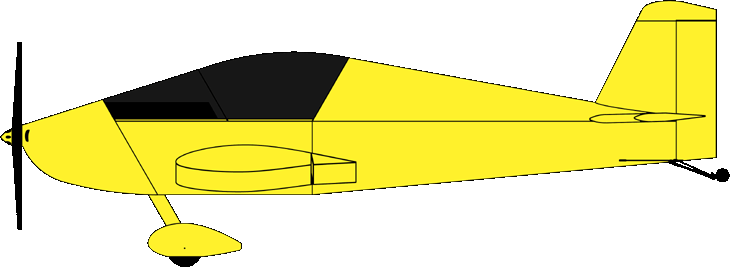


random user submitted photo
VW Head Cooling Efficiency
26 posts
• Page 3 of 3 • 1, 2, 3
Re: VW Head Cooling Efficiency
I hear what you are saying in the sense that the measurement point doesn't matter if you are consistent and you get good relative data.radfordc wrote:Practically, it doesn't matter. CHT readings are somewhat relative. What is important is that you know what is normal for your engine and be alert to any significant changes that may occur.
However - if you want long engine life the actual CHT does matter. Good primer here:
https://blog.aopa.org/aopa/2016/10/19/t ... mperature/
Graeme JW Smith
-

GraemeSmith - Posts: 939
- Joined: Sat May 18, 2019 8:58 am
- Location: RI
Re: VW Head Cooling Efficiency
...Q.....Area 51%,,,So you're the one that purchases a tool, that you need to use once, and returns it? I think I've also seen your handy work in the nut and bolt isle. 4 screws in a 5 screw bag with a hole in it.
...
..A.....""laughter laughter, with coffee coming out my nose"" , another work around idea..keep a old aviation "ie",$45.00" spark plug on your bench, to compare your cost, and also keep the extra ""unused"" spark plugs. to be used, later......
...A#2....induced by caffeine,,if i remember "correctly" from my working on CHEV 350 engine, days....(( indexing )) your spark plugs ,""at best"" 'may' give a 1% gain in horse power....
...good day / rick
...
..A.....""laughter laughter, with coffee coming out my nose"" , another work around idea..keep a old aviation "ie",$45.00" spark plug on your bench, to compare your cost, and also keep the extra ""unused"" spark plugs. to be used, later......
...A#2....induced by caffeine,,if i remember "correctly" from my working on CHEV 350 engine, days....(( indexing )) your spark plugs ,""at best"" 'may' give a 1% gain in horse power....
...good day / rick
- rick9mjn
- Posts: 49
- Joined: Wed Nov 30, 2016 2:51 am
- Location: northern ill.
Re: VW Head Cooling Efficiency
GraemeSmith wrote:I hear what you are saying in the sense that the measurement point doesn't matter if you are consistent and you get good relative data. However - if you want long engine life the actual CHT does matter ...[snip]radfordc wrote:Practically, it doesn't matter. CHT readings are somewhat relative. What is important is that you know what is normal for your engine and be alert to any significant changes that may occur.
This discussion relates to the whole "accuracy vs precision" distinction. When measuring engine temps, we expect that the instruments give us repeatable, precision measurements. However, we acknowledge that the *accuracy* of those measurements is actually not very good. Intuitively we know that all points on the engine (or head) are NOT at the same temperature, so measuring in one place won't give us a true reading of temperature in the hottest regions. Accepting that, we build a library of empirical data that gives us a way to interpret our inaccurate measurements. We further refine this by adjusting the calibration to our particular engine.
I think it's fair to say that each engine or installation will have varying degrees of inaccuracy in measuring temperatures, and we shouldn't get too fixated on any particular reading. Rather we should attempt to calibrate our results to the accepted standards to account for the uniqueness of our particular situations. Likewise, we also know that not overheating the engine is key to long life....the challenge is finding what that limit is on your engine.
The only thing we can do is use the empirical data gathered by otheres (often the manufacturer) and try to replicate their methods as best as possible. We use the same type of probe, installed in the same place on the engine, in the same way. If we do that, we can reasonably expect to use their results. So if Sonex says that they have gathered test data over the years and that's what has defined their allowable limits, we should listen to them. Other temp limits from other applications must be taken with a grain of salt when applying them to an AeroVee.
Jeff
- sonex1374
- Posts: 605
- Joined: Thu Mar 27, 2014 1:02 am
Re: VW Head Cooling Efficiency
sonex1374 wrote:Likewise, we also know that not overheating the engine is key to long life.
That's the key. And, running the engine too cool is not likely to be a problem for an Aerovee pilot. I think the best approach is to keep the engine as cool a practical. For my particular case, a Onex, there are two things I can do to keep engine temps down.
1) Optimize the geometry of the cowl exit.
2) Operate the engine at the appropriate mixture.
From Sonex LLC web site, here is a pic of Drew flying a Onex. Notice that there is no lip on the small cowl exit. Wisconsin is a wonderful place in the Summer.

The Onex prints have been revised to increase the size of the cowl exit and a lip is added to the enlarged exit. In the particular case of the Onex, since the nose of the cowl is already pretty much open, the cowl exit is really the only variable that can be "played with" to increase cooling. Again, I wish there was some reading material I could find that explains the effects of cowl exit geometry on pressure reduction (suck factor) vs. drag.
As far as mixture is concerned, most of us don't have fuel injection and will be running rich of peak to keep things cool. The only question is how rich. If you look at the graph shown in the article Graeme referenced, and ignore the numbers, it does explain the relationship between mixture, power, temperature, and fuel consumption.
Wes
Wes Ragle
Onex #89
Conventional Gear
Long Tips
Hummel 2400 w/Zenith Carb
Prince P Tip 54x50
First Flight 06/23/2020
42.8 Hrs. as of 10/30/21
Onex #89
Conventional Gear
Long Tips
Hummel 2400 w/Zenith Carb
Prince P Tip 54x50
First Flight 06/23/2020
42.8 Hrs. as of 10/30/21
- WesRagle
- Posts: 904
- Joined: Fri Jan 05, 2018 12:35 pm
- Location: Weatherford, Tx
Re: VW Head Cooling Efficiency
Regarding cowling exit, what about slapping on a rear-facing Naca duct or 2? Would this be effective in increasing outflow?
Edit: after some brief research on the subject, the NACA duct design doesn't really work in reverse, basically acts the same as a hole.
Edit: after some brief research on the subject, the NACA duct design doesn't really work in reverse, basically acts the same as a hole.
Ryan Roth
N197RR - Waiex #197 (Turbo Aerovee Taildragger)
Knoxville, TN (Hangar at KRKW)
My project blog: http://www.rynoth.com/wordpress/waiex/
Time-lapse video of my build: https://www.youtube.com/watch?v=Q8QTd2HoyAM
N197RR - Waiex #197 (Turbo Aerovee Taildragger)
Knoxville, TN (Hangar at KRKW)
My project blog: http://www.rynoth.com/wordpress/waiex/
Time-lapse video of my build: https://www.youtube.com/watch?v=Q8QTd2HoyAM
-

Rynoth - Posts: 1308
- Joined: Fri Jul 26, 2013 1:32 pm
- Location: Knoxville, TN
Re: VW Head Cooling Efficiency
The thing about mixture is cylinder head temperature. As long as the cylinder head temperature is within limits, the mixture does not matter. When you go lean of peak the cylinder head temperature drops significantly. I fly my TCM IO-470 lean of peak in cruise (which you can only do with 6 cylinder instrumentation). In climb I keep the cylinder head temps below 380 (420 is the redline). If a cylinder approaches 380 in a climb, lower the nose and climb at a higher airspeed and/or go richer on mixture if not at full rich. If the cylinder heads are never overtemped, the engine should go to overhaul time. Repeating for emphasis, cylinder head temperature is critical for engine longevity, get good instrumentation and manage it! Instrumentation is cheap compared to engine maintenance/overhaul/replacement (at least for certified engines). Steep climbouts at lower airspeeds are fun but hard on the engine, not as much cooling air as a faster climb airspeed.
- N190YX
- Posts: 80
- Joined: Thu Jun 26, 2014 7:01 pm
26 posts
• Page 3 of 3 • 1, 2, 3
Return to Technical Write-Ups and FAQs
Who is online
Users browsing this forum: No registered users and 0 guests







